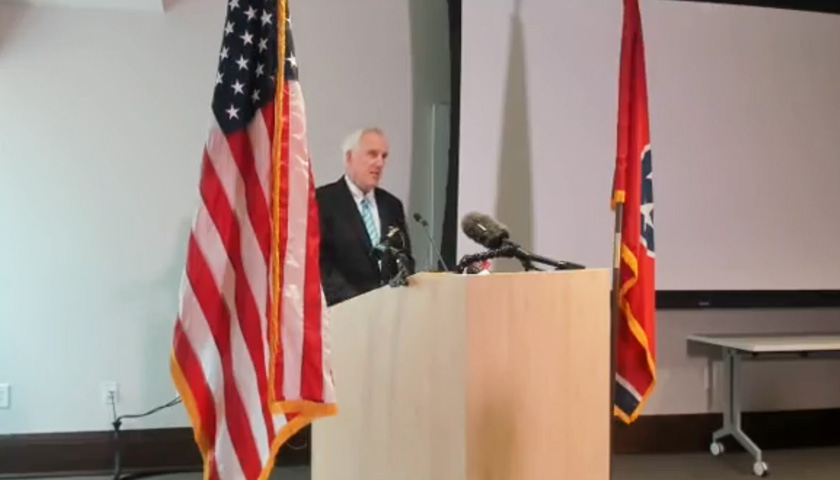In the wake of the U.S. Supreme Court’s ruling Friday that overturned Roe v. Wade and Planned Parenthood v. Casey, Tennessee Attorney General Herbert H. Slatery III announced his office has asked the Sixth Circuit Court of Appeals to lift the district court’s injunction and allow the state’s heartbeat law to go into effect as soon as possible.
The attorney general’s request to allow the state’s law banning abortion once a fetal heartbeat can be detected – generally at six weeks’ gestation – is a temporary measure until, in 30 days, the state’s 2019 Human Life Protection Act, a law that bans most abortions at any time, except those to save the life of the mother, can be enforced.
“Tennesseans, through the affirmative vote of their elected representatives, amended the Constitution a few years ago to confirm that the Tennessee Constitution does not provide a right to an abortion and leaves the issue up to the General Assembly,” Slatery said in a statement following the Court’s ruling in Dobbs v. Jackson Women’s Health Organization:
As a result of today’s ruling:
I will notify the Tennessee Code Commission in writing that Roe and Casey have been overruled, as required by statute.
We have asked the full Sixth Circuit Court of Appeals to stay the district court’s injunction of the timing provisions in our heartbeat abortion law, so that the law will go into effect as soon as possible.
Slatery then added:
In 30 days, after the issuance of the judgment, the 2019 Human Life Protection Act should go into effect in Tennessee.
“To state the obvious: Dobbs is a momentous decision,” the attorney general said. “Our republic is founded on the rule of law. Accordingly, we give respect and deference to the Court on occasions when its decisions align and support our state laws, and in cases when a decision might be contrary to Tennessee state law and what the majority of Tennesseans want, as was the case with the 2015 Obergefell decision.”
“Most importantly, after nearly 50 years, today’s decision gives the people of Tennessee a say on what the Court called ‘a profound moral issue,’” the attorney general said.
Gov. Bill Lee (R) signed the Human Life Protection Act (SB 1257/ HB 1029), a legislative priority of Tennessee Right to Life, into law on May 10, 2019.
The Act bans abortion in Tennessee “effective on the 30th day after the U.S. Supreme Court overturns Roe v. Wade or an amendment to the U.S. Constitution to allow states to prohibit abortion.”
The legislation “creates exception for situations where the abortion is necessary to prevent the death of pregnant women or prevent serious risk of substantial and irreversible impairment of major bodily function.”
According to the measure, prosecution of women seeking or obtaining an abortion is prohibited.
The Act has served as a “trigger bill,” such that, upon reversal of Roe v. Wade, the legislation restores Tennessee’s protections for unborn children and women, and reinstates Tennessee’s law as it stood prior to the 1973 Supreme Court decision in Roe v Wade. That law provides for an exception to allow an abortion, if necessary, to protect the life of the mother.
“There may be a little bit of confusion in the interim, but we think it will be pretty clear after that,” Slatery said regarding the two laws, as observed by the Tennessean, which reported that “[a]bortion providers across the state believe it likely the court lifts the injunction, and providers appear to have begun limiting future appointments in anticipation of the ruling.”
Abortions after viability are already illegal in Tennessee except in cases where the woman’s life is in danger.
We have spent years preparing for the possibility that authority would return to the states, and Tennessee’s laws will provide the maximum possible protection for both mother and child. In the coming days we will address the full impacts of this decision for Tennessee.
— Gov. Bill Lee (@GovBillLee) June 24, 2022
“We have spent years preparing for the possibility that authority would return to the states, and Tennessee’s laws will provide the maximum possible protection for both mother and child,” Lee said in a statement. “In the coming days we will address the full impacts of this decision for Tennessee.”
– – –
Susan Berry, PhD, is national education editor at The Star News Network. Email tips to [email protected].
Photo “Herbert Slatery” by Tennessee Attorney General.





